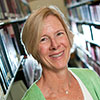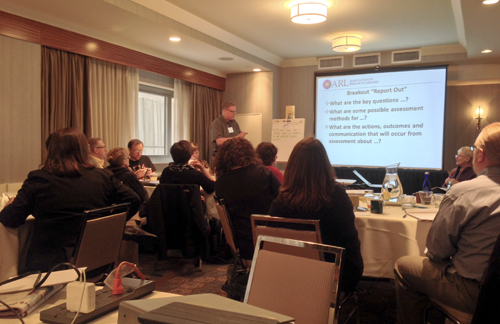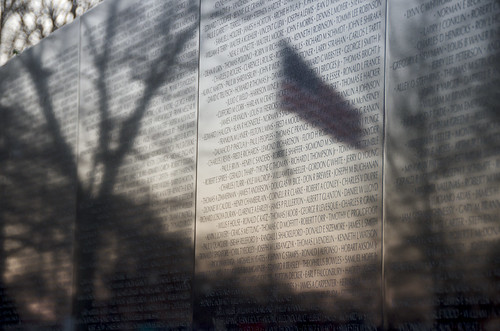This article is more than 5 years old.
“Report Out” from the Space Group
I’ve worn many hats during my years at ZSR, but I was handed a new one this academic year – assessment. Yes, of course I’ve done some assessment in my day, I think we all have done it in some fashion or another. But until this year, I was never given the responsibility for an overall assessment strategy; my experience with it was more on an ad hoc basis, project by project and done formally only when required. So when I was appointed (not elected) as chair of the ZSR Library Assessment Committee last July, I knew the first order of business was to get myself up to speed. If you stay on top of your professional reading, you’ll know that “Assessment” has become one of the Big Topics in recent years as academic (and other) libraries are pressed to demonstrate their value in the changing information landscape.
For some time, ARL has been a leader in the assessment arena, so when I saw they had developed a brand new seminar, “Leading a Strategic Assessment Program in a Research Library: An ARL Seminar for Recently Appointed Assessment Professionals,” I didn’t hesitate to sign up. This was a good move because they capped the in-person seminar at 30 and already have a second one in November filled and a waiting list for future ones….. The seminar was an intensive two day program which was preceded by 3 preparatory assignments and a pre-session webinar. The assignments helped acquaint the seminar faculty (Martha Kyrillidou, Steve Hiller and Raynna Bowlby) with each participant’s current assessment level and with our key assessment issues. By the time we arrived in Washington, DC, they were ready to group the participants by themes that had emerged from everyone’s key issues. Not surprisingly, I was assigned to the “Space” group. The other groups were Collections, Engagement with Faculty Research, Strategic Data and Student Learning. The design of this arrangement allowed each group to discuss frame the various assessment topic around the issues most important to each of us.
They got things off to a good start with a “fireside chat” by three senior administrators (Liz Mengel, Johns Hopkins; Anne Moore, SIU; Gary White, U of Md). They each gave their perspectives on what they considered important to understand when discussing assessment. My takeaways from this include:
- Assessment needs to be aligned with strategic plans/priorities of the institution
- Assessment can’t be accomplished by a single person (our committee models spreads the support structure nicely!)
- Data gathering is not assessment (which requires analysis and evaluation)
- Organizational culture drives everything
Over the course of the first day, we reviewed basics ranging from sources of traditional library data (think IPEDS, NCES, ASERL), tools (LibPas is an example and is used by ASERL), to different associations and higher ed data collection efforts. Just when I was getting a bit overwhelmed we were told about useful assumptions:
- your problem/issue is not as unique as you think
- you have more data/information than you think
- you need less data/information than you think
- there are useful methods that are much more simple than you think
Being a fan of qualitative over quantitative, I was glad to hear that there is a move in assessment from inputs (focus on how big/how much) and outputs (focus on use) to outcomes (impact and value). It’s about time to move away from the idea of size as an indicator of excellence or usage statistics (of things like collections, facilities) as a meaningful measure. These don’t tell the story of what people did with them. They don’t tell you the “why.”
Another concept I want to think about is the idea of the preferability of using trend data over a snapshot because data over time has more of an impact in telling the real story of what’s going on.
We spent a great deal of time discussing methods and the importance of asking the right questions before you select an assessment method. A big question is asking what do you want to know? That will inform the method. For assessing space, some methods that are effective are observation, heat mapping, ethnographic, interviews and focus groups.
One of the things they recommended tackling early-on that we actually have started to do is to do a data inventory to find out what data is being collected and whether it is being used. That is a first step before you can talk about using data to drive decision-making.
There was so much more covered during the two days than I can cover here but if you are an assessment aficionado, let me know and I’ll buy you a Starbucks and fill you in on all the details. (Added 3/24: There are some interesting articles in a special issue of Library Quarterly by the keynote speakers at the 2010 Assessment Conference that give a great overview of some of the big topics)
At the end of the seminar we were given a final assignment – to develop a plan to strengthen library assessment in our organization. You may be hearing from me in the next few weeks as I work to accomplish this!
I’ll leave you with my favorite image from my DC visit (you have to know I would take an evening photo walk to the Mall to capture the sights!)
Evening Reflections on the Vietnam Wall



3 Comments on ‘ARL New Assessment Professionals Seminar’
Excellent work, Susan. Assessment is in our future!
excellent!
It seems to me that I should be buying you the Starbucks. I predict many a conversation over caffeinated beverages. Thanks for attending the conference. I can’t wait to unpack all that data!